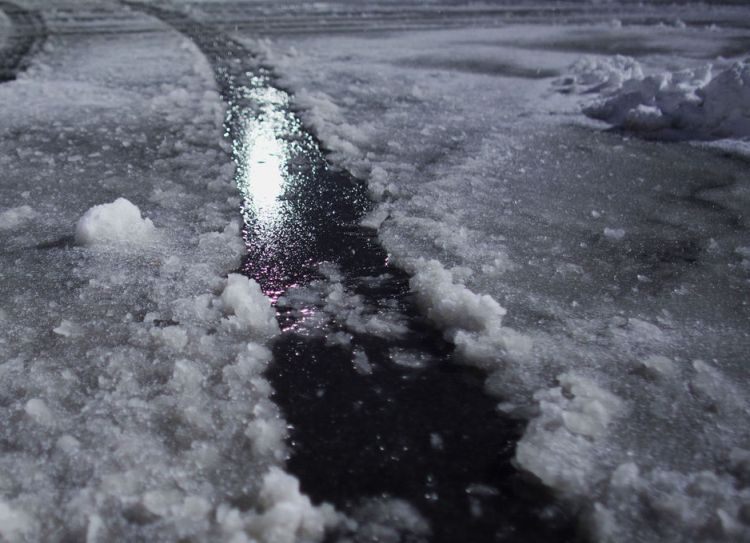BEND, OR -- Despite warmer temperatures, Oregon Department of Transportation road crews continue on 12-hour shifts, working to clear snow and ice from state highways. ODOT’s Peter Murphy says the region is heading into a weather pattern likely to create more problems. "You get that freeze/thaw cycle going on, where it’ll melt a little bit, then it’ll melt and freeze and melt and freeze; and that’s pothole city. So, coming out of this, whenever it’s going to be, that’s what will happen. So, we’ll go out initially and use a cold patch. You can’t really do a whole lot about a pothole until it warms up and dries out."
Warmer temperatures are naturally clearing some snow and ice, but it's not even halfway through winter and Murphy tells KBND News, "You’re going to have moisture rolling somewhere, that’s the bottom line - whether it’s snow or rain or whatever. And so, ice expands – that’s the one thing that expands when it gets cold. So, it’ll expand; the water, when it warms up, it’ll drop down; it’ll expand then drop down and it just kind of widens out that pothole. So, if people do see a major pothole, we probably know where it is but it’s ok to call us and let us know."
"Wash-boarding" can be the most difficult hazard during a thaw and Murphy says in severe cases they’ll send out a road grader. "That’s pretty massive weight going down and breaking it up; takes a little while to do that. That kind of thing you don’t move in a hurry on; you don’t want to tear up the highway, either. So, that takes a real skill and it takes time. Where and when it’s necessary we do that; but we do try to wait. Plus, we’ll throw magnesium chloride in, where the opportunity exists to help melt that down first; or maybe that’s all it needs."




